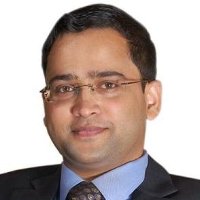Souvik Ghosh, Wolfson College, 2010 - 11
Brief bio:Souvik graduated in Mechanical Engineering from National Institute of Technology, Durgapur, India in 2006. He worked as an Analyst with Wipro, a global information technology company (2006-2010). During his tenure at Wipro, Souvik developed interests in sustainable engineering, which motivated him to apply for the M.Phil programme in Engineering for Sustainable Development at the University of Cambridge, UK. He won the prestigious Commonwealth Shared Scholarship for pursuing his postgraduation at Cambridge (2010-11). After completing his M.Phil, Souvik returned to India to join EY in 2011. Souvik joined KPMG in India in 2014, where currently works as a Manager. He has extensive experience of working in sustainability advisory and assurance engagements with leading private and public sector companies in India and abroad. Souvik's international experience includes working with global majors across sectors in UAE, UK & USA.
Dissertation title: The Environmental Impact and Sustainability of a Planned Nuclear New Build in India
Students report: Why did you do the ESD MPhil? How did it help you? What are you doing now?
My passion for Sustainable Development (SD) developed at Wipro where I got involved in the green initiatives of the company. This helped me understand the essence of SD. My interests grew stronger with time and decided to go for higher studies in SD. It was the spread and the depth of the course modules, and the experienced faculty members that motivated me to apply for this course. In addition, studying in Cambridge with the finest brains of the world was always my dream.
During the course, I explored through theory and practical projects, the concepts of and strategies for SD, evaluation frameworks for engineering activity, potential engineering responses, and sustainability metrics and methodologies. I implemented these learning to my immediate surroundings through various projects, e.g. evaluating the challenges of setting up a nuclear power plant in India as part of my individual thesis, working with a start-up company identifying business prospects for a potential clean solution, consulting a sustainable housing development project in West Cambridge as part of a team project, and participating in debates on the importance of sustainable and inclusive growth.
My ESD & Cambridge experience has imbibed within me the confidence to influence the highest leadership of companies to drive discussions and implementations of sustainability. The wide exposure I gathered through my assignments, dissertation, and projects against stringent timelines also gave me the confidence to drive and lead projects, and help my organization in making a difference fast. My role ranges from interaction with the highest leadership, senior and middle management to field visits, where I interact with people at the grass-root level and help corporates to strategize their sustainability initiatives.

